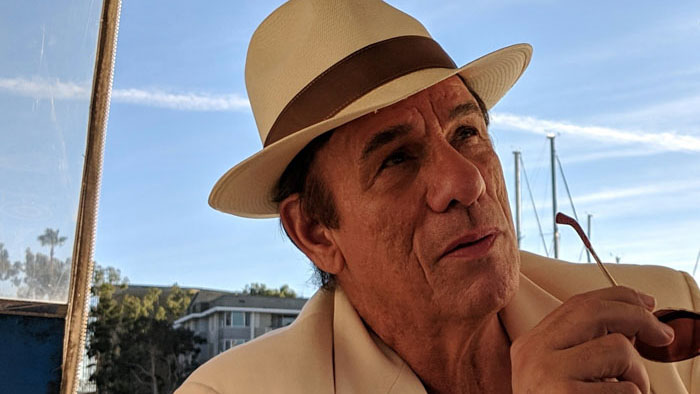
Once you have a great script and a plan to capture it all on film, but next tough step is casting. For Coplan, nothing seemed easy. He had shot everything he could without the yet-to-be-cast heroine, America. After shutting production down for a few weeks, he found Croatian actor Leona Paraminski. She wanted to make an American film, and her self-tape was perfect. After heated negotiations and an incredible amount of begging, Paraminski was on board.
Then there’s the reclusive billionaire John Conover. The original actor presented a rollercoaster ride of problems. After much of his scenes were shot, this actor found himself with public allegations of misconduct. Certainly, no distributor would touch the film if this actor was in it, and unlike Ridley Scott’s predicament with All The Money in the World, Coplan didn’t have “all the money in the world” to fix the problem. In steps Robert Davi to step in a save the day and insert himself into the role of Conover.
We’ve all heard the stories of filmmakers completing their projects with sheer determination, ruthless creativity, and a whole of luck. But once the film is completed, getting distribution and prepping your film for distribution can bring on a whole other set of problems.

“…getting distribution and prepping your film for distribution can bring on a whole other set of problems.”
“On November 6, 2020, one month before our street date of December 3, 2020, I received an email from our distributor advising me that iTunes ran a Quality Control (QC) test on the whole film, and it failed. The issues were identified as duplicate frames, ghosting, and dropped frames. The report stated: “The issues are most likely caused by a poor frame-rate conversion because the footage in the film has mixed frame rates.”
“The ghosting is likely caused by one conversion mistake, and the dropped frames are likely caused by another. I believe the filmmaker will need to go back to the original file or editing sequence and correct the conversion issues.”
The problem Coplan discovered was that his film was shot at a 29.97 frame rate when iTunes demanded a 23.97 rate, which meant transcoding the entire film to the increased speed. Every attempt failed quality control, and it appeared no one would ever see the completed 8 Winds.
“I now had to track down my original cameraman to replace the footage he shot. Since it was over four years old, I was afraid that he might not have had the original footage. He still had it, and we finished the next fixed version of the film.” On March 29, 2022, our 5-year journey came to an end our film was finally released to the public on demand, digital, and DVD.

